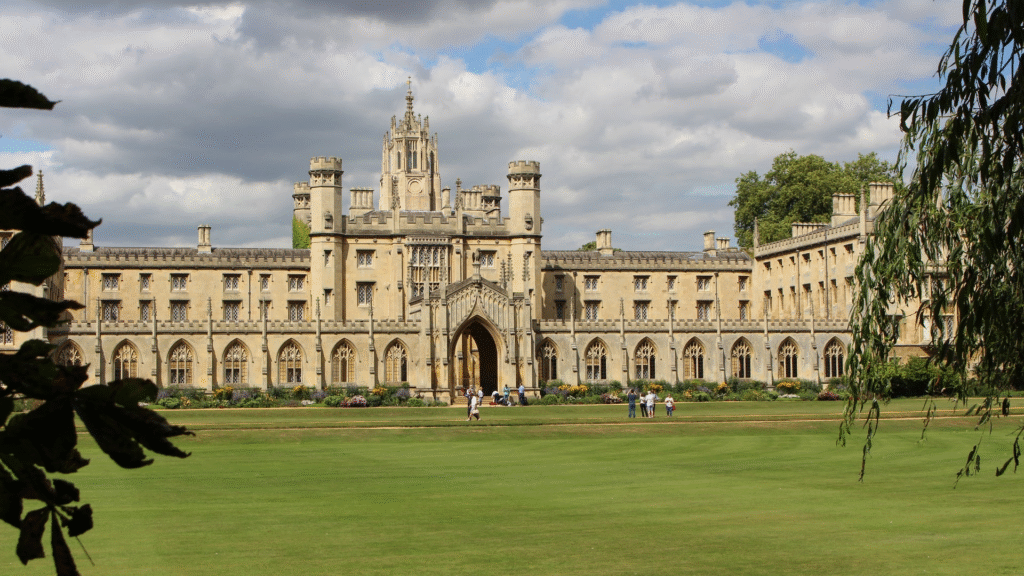Choosing the right MBA university can be one of the most important decisions in your educational and professional journey. The quality of the institution you select not only shapes your learning experience but can also influence your career trajectory, salary prospects, and professional network. But with hundreds of business schools globally, identifying the best MBA universities can be overwhelming.
This article aims to demystify this decision by exploring the top MBA universities worldwide, the criteria used to rank them, what makes these institutions exceptional, and how to choose the right fit for your ambitions.
Key Takeaways
- The best MBA universities excel in academics, career services, alumni networks, and global exposure.
- Top schools include Harvard, Stanford, Wharton, INSEAD, LBS, and MIT Sloan.
- Consider program fit based on career goals, location, cost, and culture.
- Graduates from top programs enjoy higher salaries and leadership opportunities.
- One-year vs. two-year programs have different advantages; choose based on your timeline.
- Work experience and networking are crucial to maximize your MBA investment.
- Scholarships and financial aid can offset the high costs of top MBA programs.
Understanding What Makes an MBA University the “Best”

Before diving into specific universities, it’s important to understand the benchmarks that define the best MBA programs. Various ranking bodies such as Financial Times, The Economist, QS World University Rankings, and Bloomberg Businessweek assess MBA programs using criteria like:
- Academic reputation and faculty quality
- Graduate employability and salary increase
- Alumni network strength and influence
- Program curriculum and specializations offered
- Diversity of students and faculty
- Research output and thought leadership
- Campus facilities and resources
- International exposure and exchange opportunities
- Return on investment (ROI)
The best universities excel not only in teaching business fundamentals but also in providing leadership training, real-world exposure, and lifelong networking.
Top MBA Universities in the World
1. Harvard Business School (HBS) – USA
Harvard Business School is arguably the most iconic MBA institution globally. Founded in 1908, it is known for pioneering the case method teaching style, emphasizing real-world business problems and leadership.
- Strengths: Exceptional faculty, global alumni network, leadership focus, access to vast resources.
- Notable Alumni: Michael Bloomberg, Sheryl Sandberg, Mitt Romney.
- Average Salary Post-MBA: Approximately $150,000+ (varies by year and industry).
2. Stanford Graduate School of Business – USA
Located in Silicon Valley, Stanford GSB is renowned for entrepreneurship, innovation, and technology leadership. The program fosters creativity and risk-taking, attracting students with strong ambitions in tech and startups.
- Strengths: Entrepreneurial ecosystem, personalized learning, strong ties to tech giants.
- Notable Alumni: Phil Knight, Mary Barra, Peter Thiel.
- Average Salary Post-MBA: Approximately $160,000+
3. Wharton School, University of Pennsylvania – USA
Wharton is known for its rigorous finance curriculum and extensive global presence. It offers a wide array of majors and dual degree options.
- Strengths: Finance expertise, diverse electives, strong research output.
- Notable Alumni: Elon Musk, Sundar Pichai, Donald Trump.
- Average Salary Post-MBA: Approximately $150,000+
4. INSEAD – France/Singapore
INSEAD is the top European business school with campuses in France, Singapore, and Abu Dhabi. It offers a one-year intensive MBA program with a diverse international student body.
- Strengths: Global exposure, fast-paced program, multicultural environment.
- Notable Alumni: Tidjane Thiam, André Kudelski.
- Average Salary Post-MBA: Approximately $120,000+
5. London Business School (LBS) – UK
LBS is a leading business school in Europe, known for finance, consulting, and luxury brand management programs.
- Strengths: Location in financial hub London, diverse student body, global corporate connections.
- Notable Alumni: Cyrus Mistry, Nigel Turnbull.
- Average Salary Post-MBA: Approximately $130,000+
6. MIT Sloan School of Management – USA
MIT Sloan blends technical innovation with management education, making it a top choice for those interested in technology and operations management.
- Strengths: STEM designation, entrepreneurship, analytical rigor.
- Notable Alumni: Carly Fiorina, Kofi Annan.
- Average Salary Post-MBA: Approximately $140,000+
7. Chicago Booth School of Business – USA
Known for its data-driven approach and strong emphasis on economics and finance, Chicago Booth is home to multiple Nobel laureates.
- Strengths: Analytical focus, flexible curriculum, strong finance and economics.
- Notable Alumni: Satya Nadella, Jon Corzine.
- Average Salary Post-MBA: Approximately $140,000+
8. Columbia Business School – USA
Situated in New York City, Columbia leverages its location for strong finance, media, and consulting connections.
- Strengths: Wall Street ties, executive education, entrepreneurial initiatives.
- Notable Alumni: Warren Buffett, Henry Kravis.
- Average Salary Post-MBA: Approximately $140,000+
9. HEC Paris – France
HEC Paris is one of Europe’s most prestigious business schools with a focus on leadership and luxury brand management.
- Strengths: Leadership development, luxury sector, diverse international students.
- Notable Alumni: Jean-Paul Agon, Henri de Castries.
- Average Salary Post-MBA: Approximately $110,000+
10. IE Business School – Spain
IE Business School in Madrid is known for innovation, entrepreneurship, and a strong online MBA offering.
- Strengths: Innovative curriculum, online flexibility, entrepreneurial focus.
- Notable Alumni: Pablo Isla, Martin Varsavsky.
- Average Salary Post-MBA: Approximately $100,000+
How to Choose the Best MBA University for You

While rankings and reputations provide guidance, the best MBA university is ultimately the one that aligns with your goals, learning style, and circumstances.
Consider the Following:
- Career Goals: Some schools specialize in finance, others in entrepreneurship or social impact.
- Location: Proximity to industry hubs can affect internships and job opportunities.
- Program Length: One-year programs (e.g., INSEAD) vs. two-year programs (e.g., Harvard).
- Cost and Scholarships: Tuition, living expenses, and availability of financial aid.
- Class Profile: Diversity of students, average work experience, and culture.
- Alumni Network: Strength and accessibility of alumni for mentoring and job leads.
- Curriculum and Electives: Availability of courses that match your interests.
Visiting campuses, attending information sessions, and talking to alumni can help clarify fit.
Impact of an MBA from Top Universities on Your Career
Graduating from a top MBA university often results in:
- Higher Starting Salaries: MBA grads typically see significant salary jumps.
- Better Job Placement: Strong corporate relationships help with internships and full-time roles.
- Global Career Opportunities: International networks and brand recognition open doors worldwide.
- Leadership Roles: Programs emphasize leadership skills for fast-track promotions.
- Entrepreneurial Support: Access to incubators and venture capital for startup founders.
Conclusion
The best MBA universities in the world offer unparalleled education, powerful alumni networks, and significant career advancement opportunities. Institutions like Harvard, Stanford, Wharton, INSEAD, and London Business School have set the gold standard by blending rigorous academics with leadership development and global exposure.
Choosing the right MBA university requires careful evaluation of your career goals, learning preferences, financial situation, and geographic desires. With the right choice, an MBA can be a transformational experience that not only boosts your career but also shapes you as a leader equipped to tackle the complex challenges of today’s business world.
Also Read :-Government Grants & Scholarships for MBA Aspirants in 2025
FAQs
1. What criteria do rankings use to evaluate MBA universities?
Rankings assess academic quality, employment outcomes, faculty credentials, student diversity, salary increases, and alumni success.
2. Is it better to attend a top-ranked MBA school or a school with a strong local network?
It depends on your goals. Top-ranked schools offer global prestige, while strong local schools may offer better regional job placements.
3. How important is international exposure in an MBA?
Very important for global business roles; schools with diverse student bodies and exchange programs offer valuable perspectives.
4. Are one-year MBA programs less valuable than two-year programs?
Not necessarily. One-year MBAs are intensive and favored by experienced professionals, but two-year programs offer more internship opportunities.
5. How does work experience impact MBA admissions?
Most top MBA programs prefer candidates with 3-5 years of work experience to enrich classroom discussions and networking.
6. Can I pursue an MBA online from top universities?
Many top schools offer online or hybrid MBA options with flexible learning, though the experience may differ from on-campus programs.
7. What is the average cost of attending a top MBA university?
Tuition can range from $60,000 to over $120,000 per year, excluding living expenses. Scholarships and financial aid vary by school.
